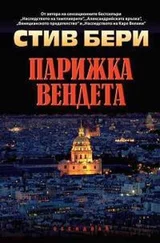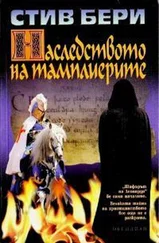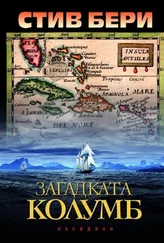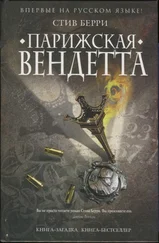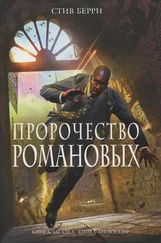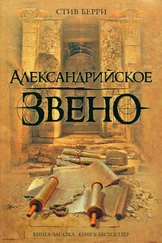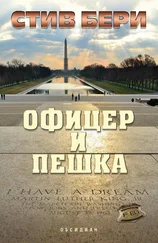He did not recognize the word.
“Mute devil,” she said.
He realized that the world was a different place in the 1940s. No massive amounts of television. No internet. Hiding was simpler, and many war criminals were quite successful at simply fading away. Especially two people most of the world already thought were dead. “Where did they go?”
“As I said, Africa.”
“How do you know this?”
She stared at him with eyes that seemed misty under hooded lids. “My brother went with them and took care of their needs.”
He waited.
“When he left Chile, he quit using his Spanish name, the one we all were given when we arrived. Instead, he reverted back to his German birthright and once again became Gerhard Schüb.”
That name again.
But now he knew who the man was.
Provided this old woman was not more misdirection.
He studied her nothing face that made little impression, perhaps because it was kept so empty of expression. But every instinct within him said she was telling the truth.
So he asked, “Why tell me this?”
“The Kaiser cannot succeed. He fancies himself an emperor. A reminder of Caesar, I suppose.” She spat on the floor. “That’s what I think of him. You are being used. The Kaiser is spinning a web into which you are being drawn. Look around you. This church was built by Jesuits in 1672. It has been raided, destroyed by bandits, burned, and ravaged by earthquakes. Yet it still stands. There are things at work here that have withstood an equal amount of assault, and they still stand, too.”
He could see she had more to say.
“I am an old woman who has found that life’s amusements fail to amuse me any longer. Food hurts my stomach. Play makes me nervous. And memories disgust me. All my life I have lived by duty and I am tired of serving. Little by little my mind has been freeing itself from the prejudices in which it was reared. It’s been a difficult endeavor, but I am coming to the end. I understand that you have no reason to believe a word I am saying. So tell me, Herr Malone, would original writings help convince you of my sincerity?”
He nodded. Why not? He’d come this far.
“I have many.”
“Are they part of the Kaiser’s web, too?”
She smiled. “Some were supposed to be.”
He caught the message. “But not all?”
“Hardly.”
“Then I’d like to see these writings.”
CHAPTER TWENTY-SIX
SANTIAGO
1:00 P.M.
Cassiopeia accompanied Vergara into the elegant Banco del Estado, its neoclassical façade an unflattering shade of pale yellow. Across the street, in a tree-shaded plaza, a band was entertaining a group of listeners. The music faded as heavy glass doors eased shut behind her.
Vergara had explained on the drive over that the bank was a venerable Chilean institution dating from the 19th century, surviving countless revolutions and even the communists. The documents they’d found repeatedly mentioned the bank as the recipient of money transfers, and Vergara had thrown his weight around and arranged an immediate meeting. The managing director was expecting them, so they were quickly ushered into a second-floor office where a tall, lean man with wispy brown hair greeted them with handshakes and introduced himself as Vicente Donoso. He was dressed in what she recognized as an expensive Fabio Inghirami suit with a striking Gucci tie.
“I have conveyed your request for documents to our legal counsel and, while it is being considered, I have been directed to speak with you,” Donoso said in English. “We pride ourselves on cooperating with the police. This bank has a long-standing relationship with the government. So please, explain precisely what it is you desire.”
She sat in the proffered chair and told the banker about the documents she’d just spent the past few hours reviewing. “I have in my possession German war records that indicate various accounts were opened in this bank from 1942 to 1951. They are in a variety of individual and corporate names.”
“Might I see these documents?” Donoso asked.
She opened the briefcase Vergara had provided and extracted a sheaf of twenty pages. She’d culled through the files and narrowed her interest to certain memoranda, all from Martin Bormann, authorizing the transfer of various amounts in gold and cash out of Germany to the Banco del Estado. She handed the papers to Donoso, who scanned each page with obvious interest.
“You read German?” she asked.
He looked up. “My mother insisted I learn her native language.”
He flashed her a toothy smile before returning to his reading.
“Fascinating,” he said when he finished. “I have read many versions in books of Nazi moneys being sent overseas, but none from firsthand information. And Martin Bormann himself approving so many. Extraordinary.”
“He was directly in charge of Hitler’s Bounty,” she said. “Hundreds of millions of marks were collected, and only Bormann would have known where those funds were ultimately deposited.” She gathered the pages back from Donoso. “Do your records go back to the 1940s? I have some account numbers for this bank.”
“Let us find out.”
“I thought we needed to wait on the lawyer,” she said.
“I don’t believe it will hurt for me to have a look. Do you? May I have the account numbers?”
She handed him a sheet of paper. He turned his attention to a desktop computer, began typing, then studied the screen. “Most of the accounts noted are long closed. A few are still active.”
Had she heard right? “Still active?”
“ Sí. Three of the accounts you have identified are currently open.”
“Meaning moneys are moving in and out?”
“You understand I cannot answer that question. We would have to wait for the lawyer. On the dormant or closed accounts, from fifty years ago, I have no problem discussing those. But something active, that is a different matter altogether.”
“Senor Donoso,” Vergara said. “We require information on those active accounts. It is important to a murder investigation. Do I make myself clear.”
“Without question, Minister, but the law mandates I cannot reveal anything on an active account. Surely you are not saying I ignore the law.”
Vergara straightened in his chair. “I would never advise anyone to do such a thing. But I can secure a judicial order to allow the inspection of records.”
The banker nodded. “As my legal counsel informed me earlier. I suggest that be done.”
Vergara motioned to the computer terminal that sat adjacent to Donoso’s desk. “If you will access your electronic mail I think you will find a transmittal of an order that I requested three hours ago. I was assured it would be forwarded directly here by the court.”
The banker threw them a curious look before rolling his leather chair closer to the computer and again tapping on the keyboard. The screen faced away from Cassiopeia. A moment later Donoso glanced over and said, “You are correct. It is signed by the magistrate and allows for a full inspection. The original is being delivered as we speak.”
“Must we wait?” Vergara asked.
“No, Minister. All of the legal requirements seem to be in order.”
The banker stabbed a button on a telephone console and spoke Spanish into the receiver. Cassiopeia understood every word of the instructions for an assistant to gather up the documents.
“It will only be a few moments,” Donoso said to them when he finished. “We have had some experience with this type of matter before. About ten years ago there was an international lawsuit that involved a subpoena for our records. I handled that matter for the bank. It was fascinating to learn what happened during the war. Reading the documents you just provided brought all that back to me. Are you familiar with Aktion Aderflung?”
Читать дальше

